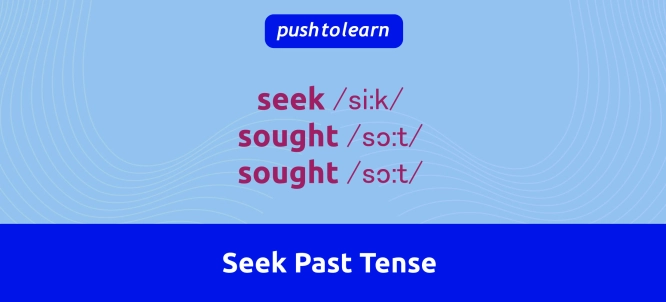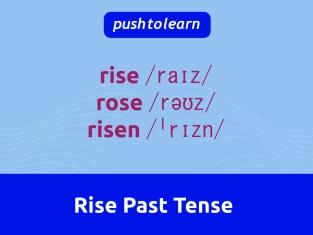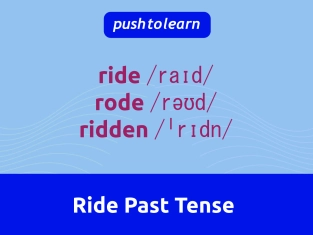by PushtoLearn
Seek Past Tense
Table of Contents
Seek Past Forms - Exercises
These exercises test different forms of the verb SEEK and IRREGULAR VERBS
The Past Tense of "Seek" – Sought
The past tense of "seek" is "sought." This is an irregular verb, meaning it doesn’t follow the usual rule of adding "-ed" to the end, as many other verbs do.
|
Base Form |
Past Tense |
Past Participle |
|
seek |
sought |
sought |

How to Use "Sought" in Sentences
Here are some examples to help you see how to use "sought" in sentences.
-
I sought advice from my teacher (I looked for advice from my teacher).
-
They sought shelter from the rain (They looked for a place to stay out of the rain).
-
She sought a solution to the problem (She looked for an answer to the problem).
Notice how "sought" is always used to indicate something in the past, like actions that have already happened.
Common Errors with "Sought"
Some people make mistakes when using "seek" in the past tense. Here are a few common errors and how to correct them:
|
Incorrect Sentence |
Correct Sentence |
|
She seeked help when she was lost. |
She sought help when she was lost. |
|
They have seeked many opportunities. |
They have sought many opportunities. |
|
I am seekinged advice. |
I sought advice. |
Since "seek" is an irregular verb, "seeked" is not correct; it should always be "sought."
Everyday Use of "Sought"
Using "sought" might feel unusual at first because it’s less common in casual conversation, but you might hear it in the following situations:
-
In Formal or Written Language:
-
Example: The company sought to expand into new markets.
-
When Talking About Past Searches for Help or Guidance:
-
Example: We sought advice from a consultant.
-
In Literature or News Articles:
-
Example: The scientist sought to discover new treatments.
Using "sought" can make your language sound more formal or polite, which is great for professional or academic contexts.
FAQ
What is the past tense of "seek"?
The past tense of "seek" is "sought."
Why can’t we say "seeked"?
"Seeked" is incorrect because "seek" is an irregular verb and does not follow the standard "-ed" rule for past tense verbs. The correct form is "sought."
Is "sought" used in everyday conversation?
"Sought" is less common in casual conversation but is frequently used in formal or written contexts.
What’s the difference between "seek" and "look for"?
"Seek" is more formal than "look for." "Seek" can be used in professional or serious contexts, while "look for" is common in everyday language.
Can "sought" be used in the present tense?
No, "sought" is only the past tense of "seek." The present tense form is simply "seek."

